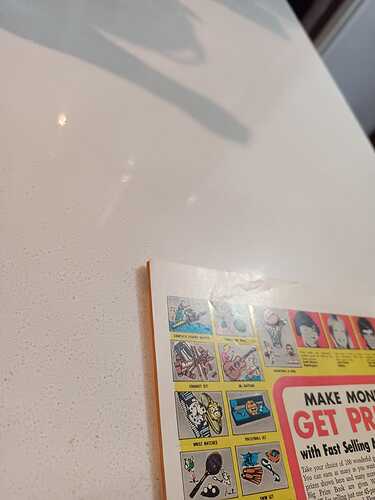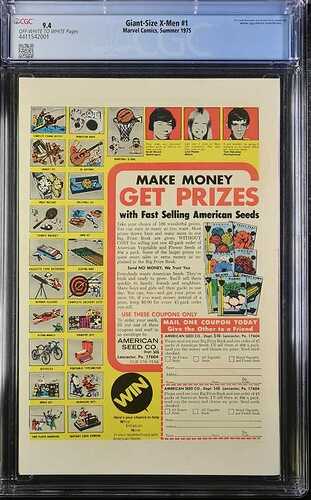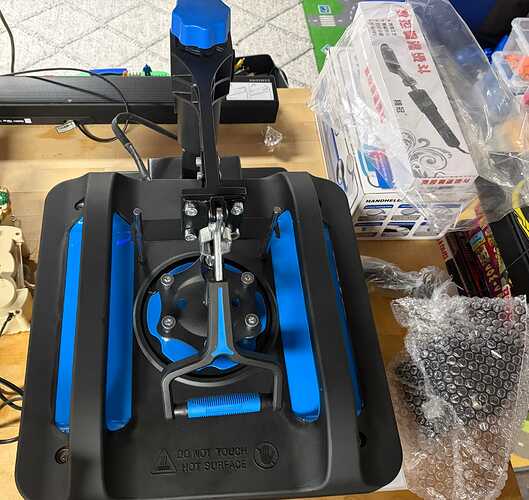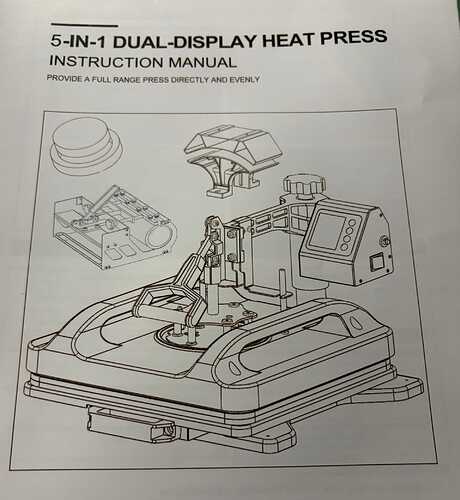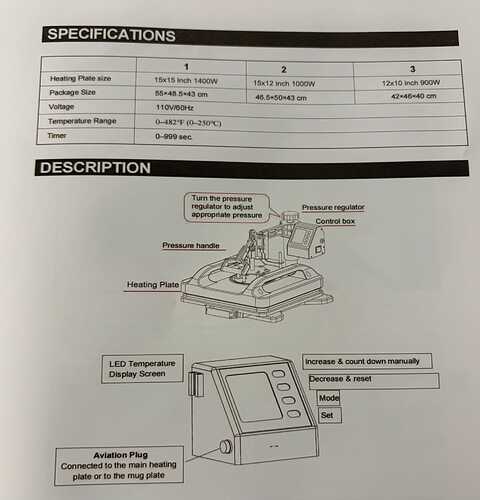Does anyone know the range of pressure required to press comics ? — like to press deep creases out of Bronze Age books — if anyone knows or has a machine with a psi or total pound force read out that can tell you please let me know. Thanks
I’m assuming you’re using a pneumatic pressing machine. Those typically don’t go lower than 15-20 PSI. I don’t have experience w these because I use hand lever presses and I measure the pressure based on feel, not PSI. If you are using a pneumatic press, use lighter pressure. 10 PSI if possible. Generally you don’t need much pressure to get creases out. It’s everything you do before the press that matters most, like massaging the crease out with a ball bearing and introducing humidity.
Def do more research though, good luck!
I am a newbie to getting books pressed. I decided to give CCS pressing a try of 25 books, all modern mostly from the 80’s and alot of the books came back with grading notes, with “light cover bends” and light creasing"
Does pressing not remove these types of defects? overall disappointed with the CCS pressing results.
Yes if you read some of the other threads here on pressing, people would tell you not to send books to ccs grading. You really want the monkeys at CGC to press your books? They do a quick press and that’s it. They won’t give you the attention and care that a lot of third party pressers will give your books. Search around there’s lots of good recommendations for pressers with good reputations.
80’s books are extremely easy to press because the paper stock is very malleable, shows you how careless ccs is with your books. When I started pressing myself I’ve learned through trial and error. Realized that certain defects you had to press them multiple times. I would press the books and leave them in a cold press to stop reversion. Heard horror stories of people who got their books pressed by ccs and got it graded only to see the reversion of the ticks and bends back onto the book after it was encapsulated.
thanks for the feedback, I am regretting submitting to ccs pressing, really poor results. the turnaround time was incredibly fast, books received April 1 and all 25 books were pressed and graded and shipped by April 11. not sure if this is good or bad. but everything was done in 9 business days. regular service.
Some creasing is permanent when the paper fibers are broken. There’s no undoing that, just smoothing out as much as possible. Here’s an example from a giant size X-Men 1 I just pressed. Creasing could not be removed completely. It’s rare but it does happen.
Here’s the back cover in the slab. Creasing is mostly smoothed out and unnoticeable but the graders still noted the creasing in the notes. So it’s possible (though unlikely) that CCS did a great job on your books, maximized the grades and the graders noticed stuff that could not be completely removed. Look at the books closely and try to find whatever they’re noting. Going forward, try a local presser w a good reputation.
dP, do you use 10x magnification when you’re working on the creases? I’ve heard some pressers say that’s what CGC uses when they’re grading your books. I don’t know how they would know this when CGC hasn’t officially said so themselves. Watching that 9.9 transparency video from CGC, the grader had a cheap little lamp on the side and was just eyeing the book on the corner and spines, zipping through the books in seconds ![]()
Those were just modern books but I would assume they would take more care and scrutinize your books a lot more if it’s a GSX1 (unless if you’re the CEO of Comic Connect/Metropolis).
No I don’t lol but I’ve heard theories that they use magnification for checking paper textures to try and catch cleaning methods that they’d consider to be conservation or restoration. Despite what they say, I do believe CGC has different grading standards for different tiers. If they come under enough pressure and scrutiny over handing out 9.9s to bronze age and older, I predict they’ll eventually admit to having different grading scales for different eras.
Any recommendations for presses under $200? Wife is asking for x-mas ideas…And I have nothing.
But I’ve always wanted to dabble a bit in pressing. Wondering what other people use, or might recommend.
I’m not looking to do anything too exotic…like card stock, embossed or delicate/fragile comics…just your average comics that can improve a bit from a clean/press. One comic at a time, beginner level.
Here’s one I had saved in my amazon cart from a few years back when I was reading up on it a bit (I purchased a book on cleaning & pressing).
This one is a cyber Monday deal.
Any help is appreciated. Thanks.
Go with the 15x15, you can do 2 comics at once.
Yes. That’s an advantage.
I was looking more for key features. Seems like digital temperature control, timer are good. Seems like pressure adjustment is by observation/feel/trial and error…?
Will need to purchase other equipment…such as a flat steel Plate, card stock and paper for buffering…
humidifier seems to be another investment…although I see people using hand held ones (versus a chamber). Will likely start small and work my way up with certain defects anyway.
I see these “combo” presses are just adding feature for hats and mugs…which would be fun, but I don’t feel I need.
-
The pressure adjustment will come down to feel/trial by error. You’ll get a hang of it after a while. Every comic has their own thickness and varies by age so it’s not a one size fits all. You will make mistakes in the beginning but just remember to try to apply not so much pressure. Putting too much pressure on will pop out the staples. You can actually see when a comic is pressed poorly.
-
A flat steel plate is a must to distribute the heat evenly. I got mine custom made, found a local metal supplier and had it cut to 15x15 (2 pieces).
-
A humidity chamber is completely unnecessary. I use a handheld steamer that shoots out fine mist and have never had a problem ever. Always use distilled water. I will sometimes just get a little moisture on a q-tip and apply it to the needed area.
There’s a lot of information out there and it can feel overwhelming but imo a lot of it is just noise. When I first got my press I didn’t know too much about pressing, just from a few videos that I watched. I made a mistake by buying a clamshell press rather than a pump. Originally when I bought it it was mainly just so that I can practice pressing and to make my comics look better. I had no intention of pressing my books and then selling them in better condition. As I got better at it I started to press books that were worth hundreds of dollars. You just get better with more practice, that’s all there is to it. You will make mistakes at first as you get used to the different paper and temperature settings. Practice on dollar bin books first.
One of the benefits of buying a press is that I can go to my shop and sometimes pick out a fine/very fine book, examine it carefully and perform some voodoo magic and have it come out a 9.8. Prior to this I may have passed over that book at a shop because of the condition. That was what I did when x-men 251 blew up into a $100+ book. The copy I found at my shop was a 7.5 at best with lots of wrinkles and spine ticks but no color breaks. Worked my magic and sold it for $75. The buyer was so thrilled and left me feedback saying he was thrilled with the book and said the condition was way better than he thought it was going to be (because I didn’t list a condition). He thought it was mint. I was so proud, just my newbie skills and a cheap press.
Why was that a mistake?
I would think the clamshell would gradually add pressure unevenly at first, potentially distorting the book…but swivel designs come straight down/more even all at once…but that’s just what would concern me looking at them.
yes, you want the press that comes straight up and down. The clamshell I had the pressure was uneven and if I had the comic in a certain way it would apply more pressure to the comic that was closest to the interior of the clamshell, not good. Damaged a book or two that way. Learned my lesson and changed where I oriented the book.
Def swivel over clamshell. Clamshells hit the book at an angle which is no good. I hated my clamshell and sold it at a loss to buy a 2nd swivel. I’ve gone through different presses and it really comes down to technique over anything else.
Any swivel under $200 with good reviews will be fine. Just pay attention to the minimum temps. Some heat presses don’t heat up lower than 200 but you’ll be pressing as low as in the 130s.
As for going larger to press 2 books at once, I’d only recommend that if pressing the same exact books. Especially with older books that can vary so greatly with width, paper type, recommended temps, etc. With current books, as long as they’re the same sizes/widths it should be mostly ok.
yup, I only press 2 comics at the same time if they’re the exact same book or same age. You can weigh it on a digital scale to be extra careful.
Got my press for x-mas. I like the color.
2026 is going to be a whole new comic experience now…I still need to get the 15x15 steel plate before I start experimenting. Although I can do some tack pressing.
Congrats, it adds a whole new element to the hobby. Enjoy it!
